This book studies the implications for third-country nationals of the adoption of the Long-term Residence Directive. This Directive has the potential to become a subsidiary form of EU citizenship that escapes direct control by Member States. Hence, this Directive brings the prospect of transforming Member States’ control over the relationship between territory and population.
In order to arrive at this conclusion, the book looks at its content and at the way in which Member States have implemented some of its most controversial articles. It then explores how the Court of Justice could interpret those articles, taking into account its previous jurisprudence on Turkish workers and EU citizens and calling into question the compliance of several national provisions with EU law.
Suggested citation: Diego Acosta, The Long-term Residence Directive as a Subsidiary Form of EU Citizenship. An Analysis of Directive 2003/109 (Martinus Nijhoff, Leiden/Boston, 2011).
Citations
Cited by the European Commission in COM (2011) 585 final, Report on the application of Directive 2003/109/EC concerning the status of third-country nationals who are long-term residents, Brussels, 28 September 2011.
Reviews
‘(…) Acosta’s book provides a well written and insightful analysis for anyone interested in European migration policy. And some of the author’s predictions have already been vindicated(…)’
Sabina Anne Espinoza, European Law Review, 39 (2014), pp. 438-441.
‘(…) the book is a highly valuable contribution to the literature on EU Migration Law. By providing an in-depth and comparative evaluation (…) the book constitutes an important reference tool for the future interpretation of long-term residence status in the EU. The normative approach combined with a detailed analysis of national legislative provisions makes it a valuable read not only for academics, but also for policy-makers and practitioners, not least EU legislators and judges themselves.’
Anja Wiesbrock, European Journal of Migration and Law, 15 (2013), pp. 229-231.
‘It is also notable how the author combines the theoretical perspective with an eminently practical vision, frequently deepening in the political motivations which complements the technical and legal analysis and enriches the monograph by the wide use of multidisciplinary literature’).
Sara Iglesias Sánchez, Revista de Derecho Comunitario Europeo, 16 (2012), pp. 744-746.
Related Content
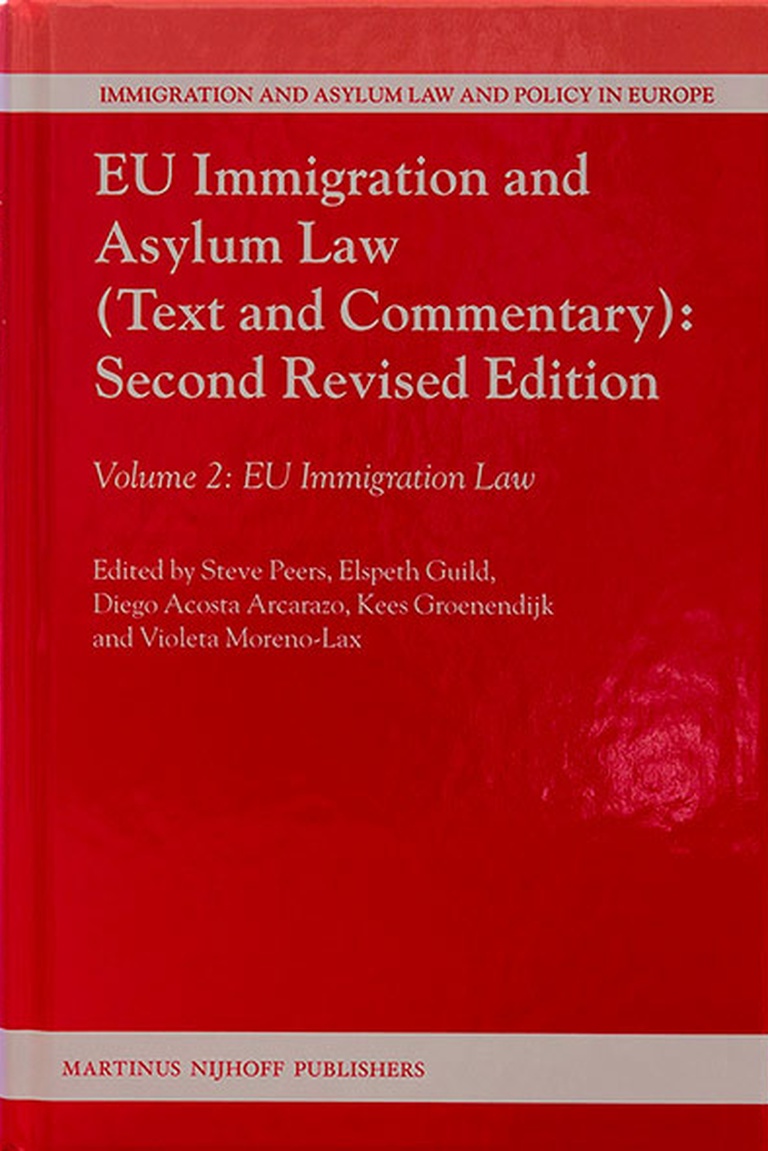
EU Immigration Law (Text and Commentary)
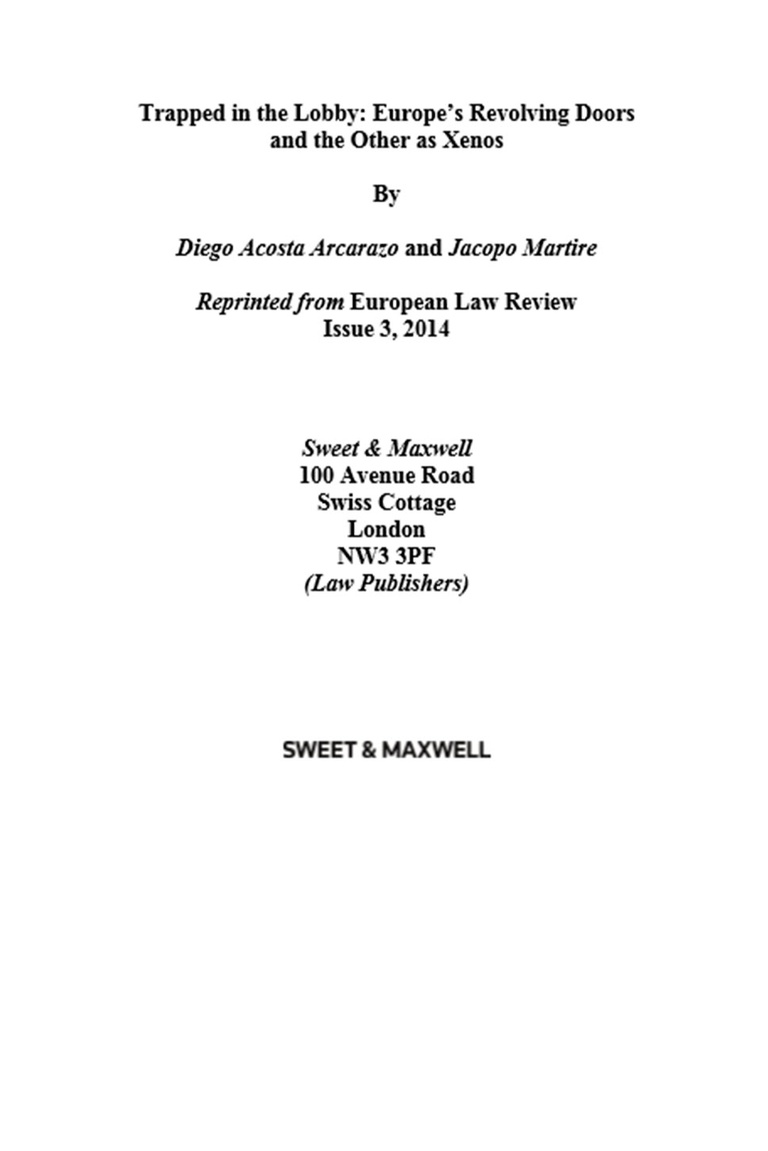
Trapped in the Lobby. Europe’s Revolving Doors and the Other as Xenos
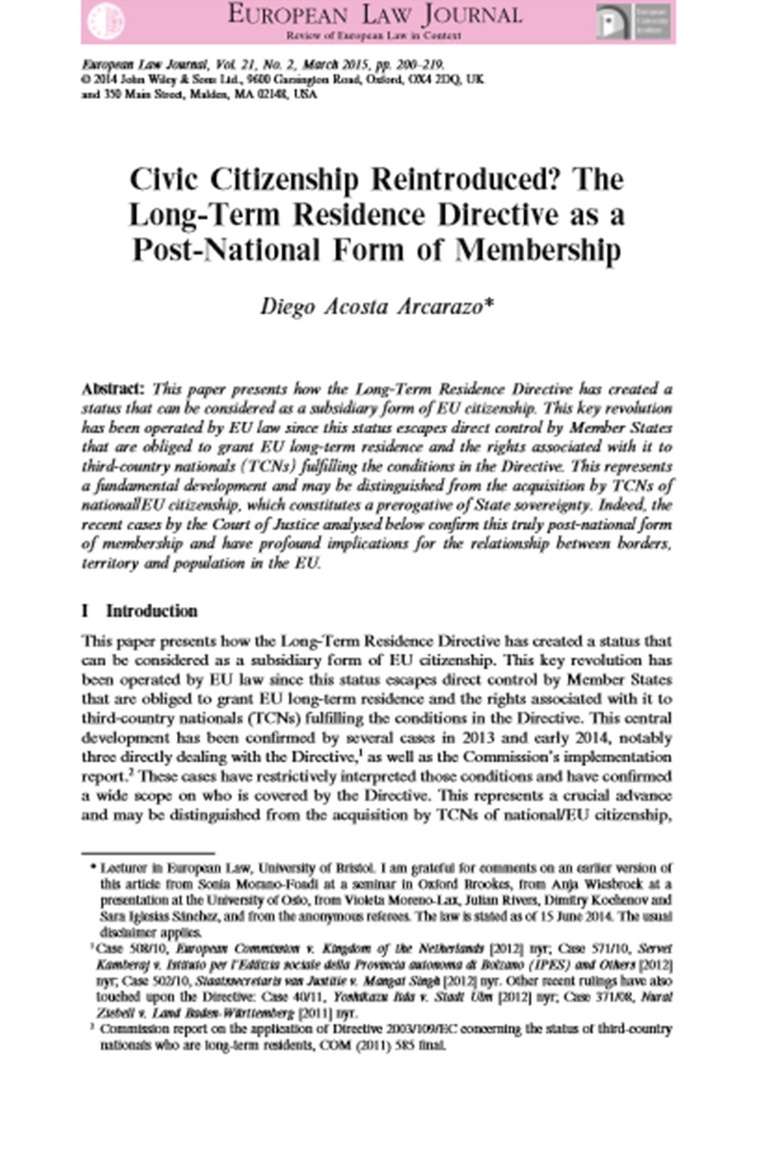
Civic Citizenship Reintroduced? The Long-Term Residence Directive as a Postnational Form of Membership
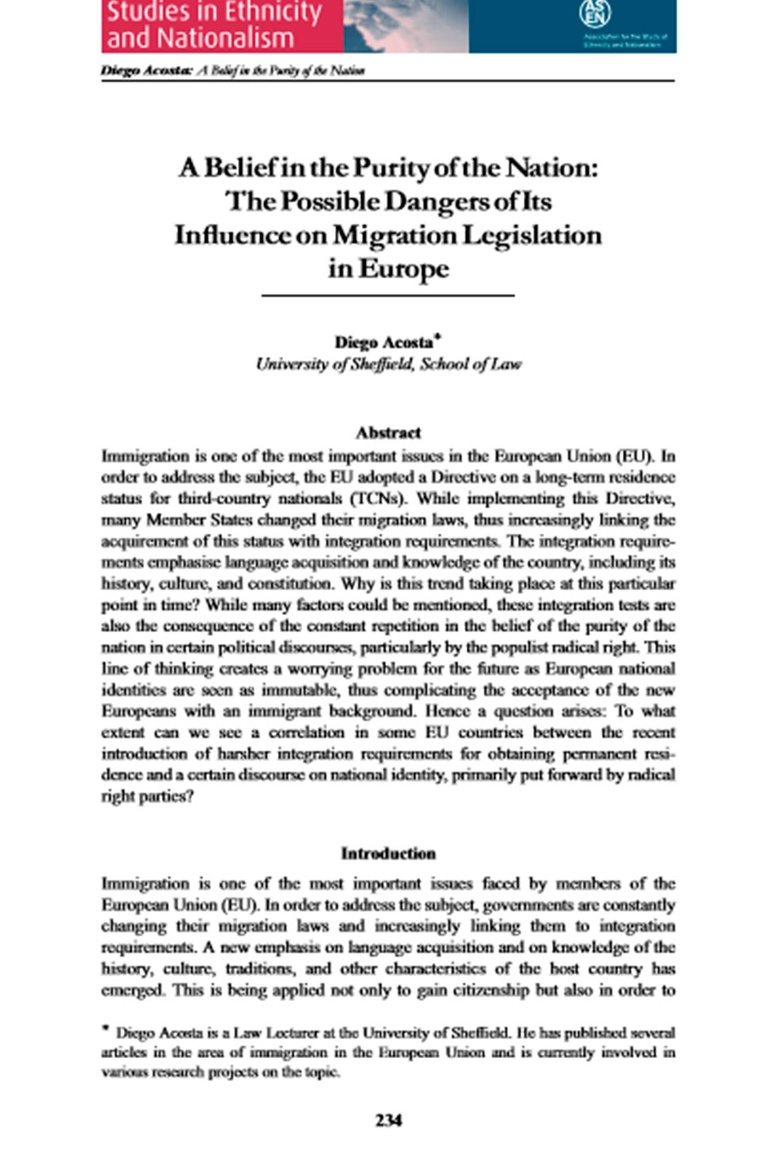
A Belief in the Purity of the Nation. The Possible Dangers of its Influence on Migration Legislation in Europe
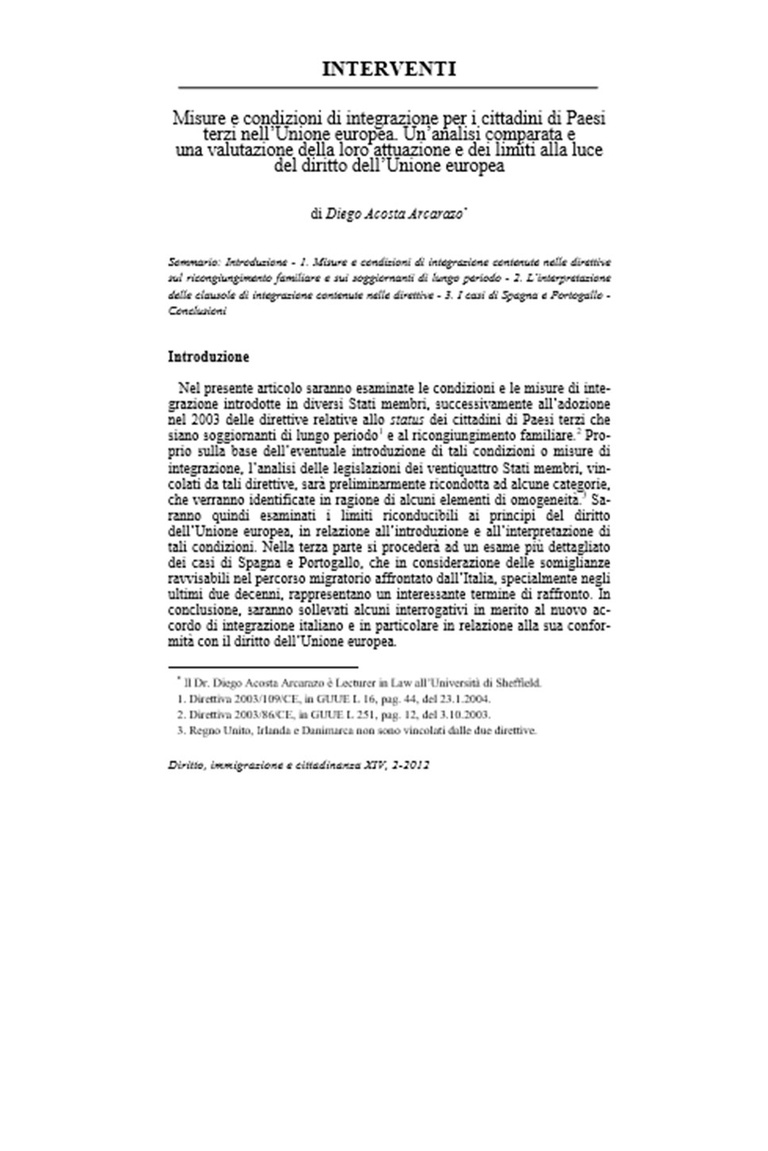
Misure e Condizioni di Integrazione per i Cittadini di Paesi Terzi nell’Unione Europea
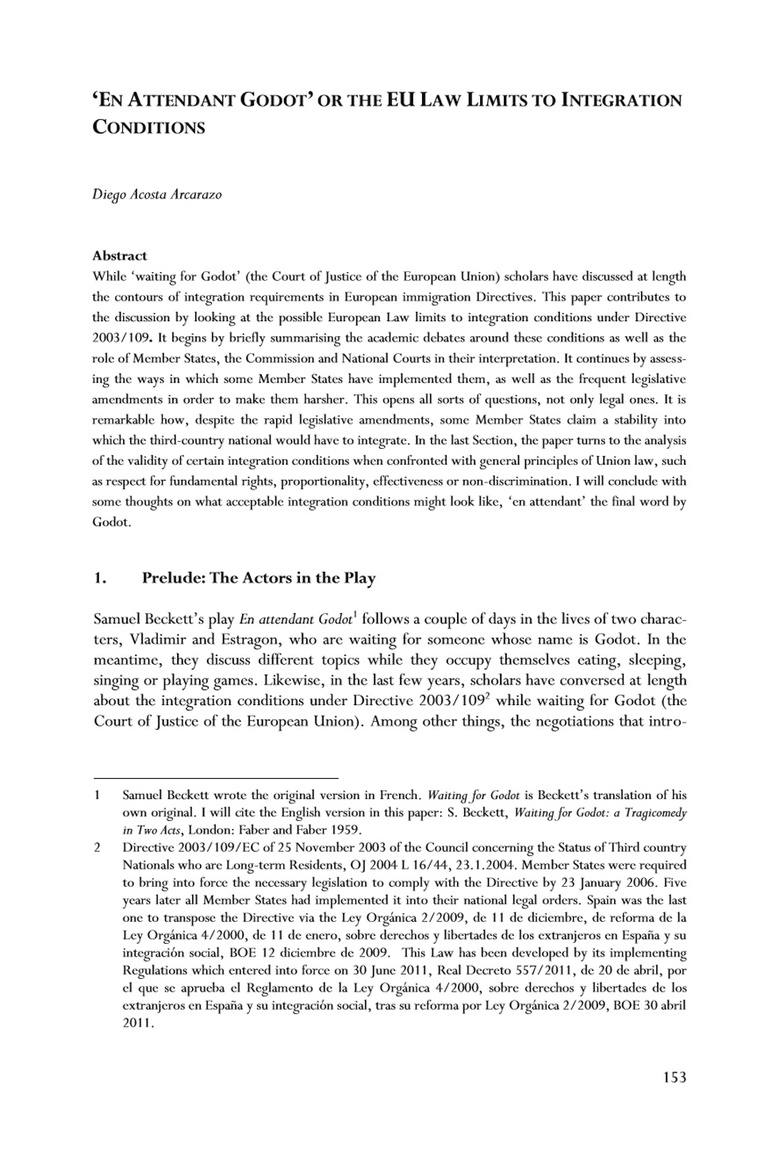
“En Attendant Godot” or the EU Limits to Integration Conditions
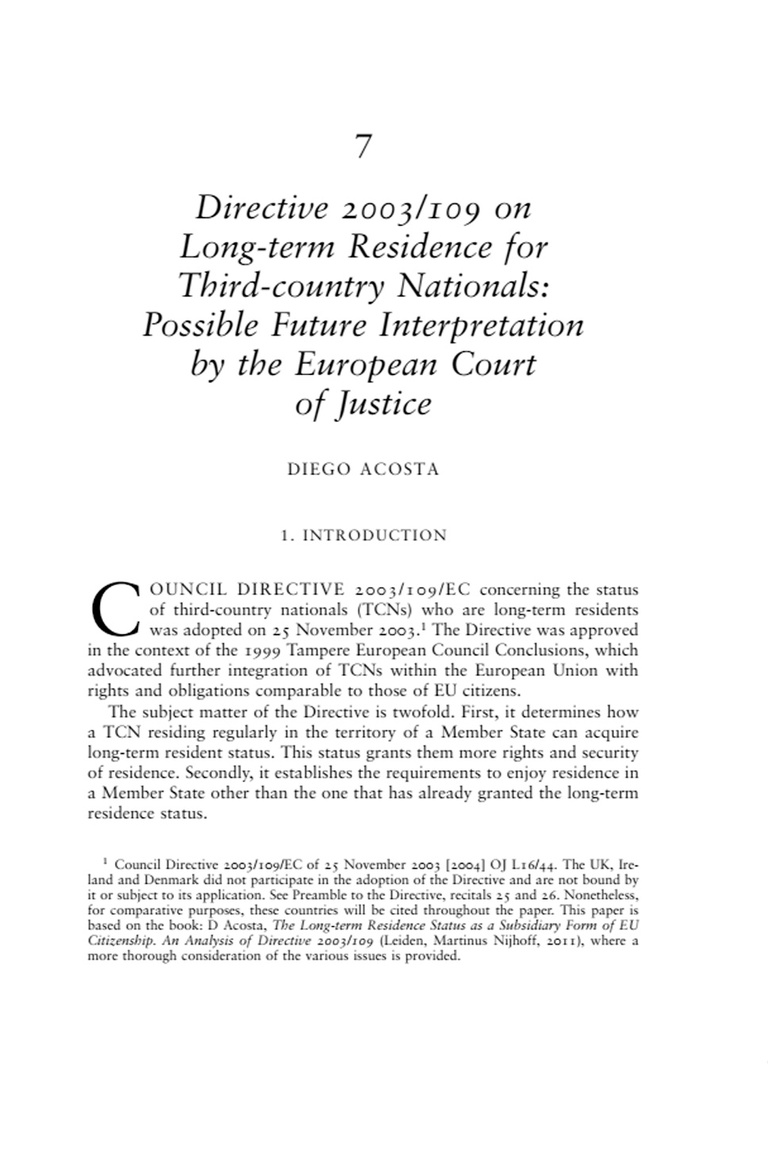
Directive 2003/109 on Long-term Residence for Third-country Nationals
